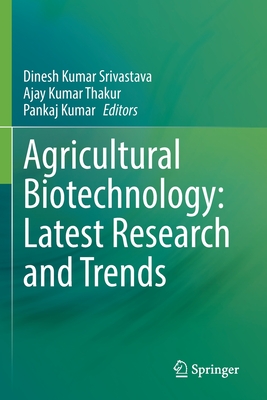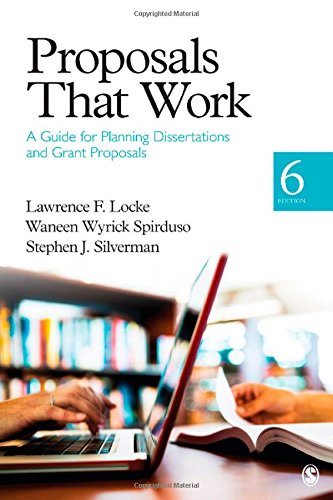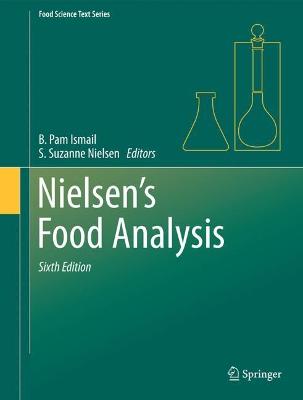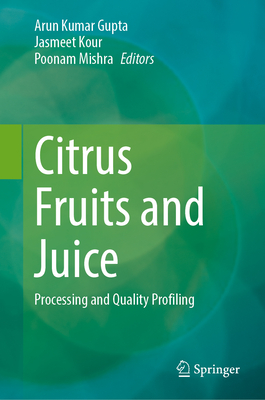图书简介
This book caters to the need of researchers working in the ever-evolving field of agricultural biotechnology. It discusses and provides in-depth information about latest advancements happening in this field. The book discusses evolution of plant tissue culture techniques, development of doubled haploids technology, role of recombinant-DNA technology in crop improvement. It also provides an insight into the global status of genetically modified crops, use of RNAi technology and mi-RNAs in plant improvement. Chapters are also dedicated for different branches of ‘omics’ science including genomics, bioinformatics, proteomics, metabolomics and phenomics along with the use of molecular markers in tagging and mapping of various genes/QTLs of agronomic importance. This book also covers the role of enzymes and microbes in agriculture in productivity enhancement. It is of interest to teachers, researchers of biotechnology and agriculture scientists. Also the book serves as additional reading material for undergraduate and postgraduate students of biotechnology, agriculture, horticulture, forestry, ecology, soil science, and environmental sciences. National and international biotechnologists and agricultural scientists will also find this to be a useful read.
Chapter 1. Commercial micropropagation of some economically important crops.- Chapter 2. Clonal propagation, a tested technique for increasing productivity: A review of bamboos, eucalyptus and chirpine.- Chapter 3. In vitro production of medicinal compounds from endangered and commercially important medicinal plants.- Chapter 4. Double haploid production and its applications in crop improvement.- Chapter 5. Encapsulation technology: an assessment of its role in in vitro conservation of medicinal and threatened plant species.- Chapter 6. Somaclonal Variation in Improvement of Agricultural Crops: Recent Progress.- Chapter 7. Genetic fidelity studies for testing true to type plants in some horticultural and medicinal crops using molecular markers.- Chapter 8. Callus culture approach towards production of plant secondary metabolites.- Chapter 9. Transgenic implications for biotic and abiotic stress tolerance in agricultural crops.- Chapter 10. Production of marker-free transgenic plants.- Chapter 11. Recent progress in cereals biofortification to alleviate malnutrition in India - An overview.- Chapter 12. Potential and perspective of plant proteinase inhibitor genes in genetic improvement of economically important crops.- Chapter 13. Global Status of Genetically Modified Crops.- Chapter 14. Organic GMOs: Combining ancient wisdom with modern biotechnology.- Chapter 15. Genomics in crop improvement: Potential applications, challenges and future prospects.- Chapter 16. Proteomic Approaches to Understand Plant Response to Abiotic Stresses.- Chapter 17. Plant Metabolomics for Crop Improvement.- Chapter 18. New generation plant phenomics applications for next-generation agricultural practices.- Chapter 19. RNA interference technology as a novel and potential alternative for plant improvement.- Chapter 20. miRNA-mediated regulation of biotic and abiotic stress responses in plants.- Chapter 21. The role of nano-fertilizers in smart agriculture: an effective approach to increase nutrient use efficiency.- Chapter 22. Shifting paradigm towards the crops: From model plants to crops and employing the genome engineering to target traits.- Chapter 23. QTLS and gene tagging in crop plants.- Chapter 24. Nanotechnology and Robotics: The twin drivers of agriculture in future.- Chapter 25. Hydroponic and aeroponic cultivation of economically important crops for production of quality biomass.- Chapter 26. Amaranth, Buckwheat and Chenopodium: The ABC Nutraceuticals of North-Western Himalayas.- Chapter 27. Application of plant growth-promoting rhizobacteria (PGPR) in crop productivity improvement and sustainable agriculture.- Chapter 28. Mushroom Biology and advances.- Chapter 29. Enzymes and Microbes in Agro-processing.- Chapter 30. Application of Bioinformatics in crop improvement.-
Trade Policy 买家须知
- 关于产品:
- ● 正版保障:本网站隶属于中国国际图书贸易集团公司,确保所有图书都是100%正版。
- ● 环保纸张:进口图书大多使用的都是环保轻型张,颜色偏黄,重量比较轻。
- ● 毛边版:即书翻页的地方,故意做成了参差不齐的样子,一般为精装版,更具收藏价值。
关于退换货:- 由于预订产品的特殊性,采购订单正式发订后,买方不得无故取消全部或部分产品的订购。
- 由于进口图书的特殊性,发生以下情况的,请直接拒收货物,由快递返回:
- ● 外包装破损/发错货/少发货/图书外观破损/图书配件不全(例如:光盘等)
并请在工作日通过电话400-008-1110联系我们。
- 签收后,如发生以下情况,请在签收后的5个工作日内联系客服办理退换货:
- ● 缺页/错页/错印/脱线
关于发货时间:- 一般情况下:
- ●【现货】 下单后48小时内由北京(库房)发出快递。
- ●【预订】【预售】下单后国外发货,到货时间预计5-8周左右,店铺默认中通快递,如需顺丰快递邮费到付。
- ● 需要开具发票的客户,发货时间可能在上述基础上再延后1-2个工作日(紧急发票需求,请联系010-68433105/3213);
- ● 如遇其他特殊原因,对发货时间有影响的,我们会第一时间在网站公告,敬请留意。
关于到货时间:- 由于进口图书入境入库后,都是委托第三方快递发货,所以我们只能保证在规定时间内发出,但无法为您保证确切的到货时间。
- ● 主要城市一般2-4天
- ● 偏远地区一般4-7天
关于接听咨询电话的时间:- 010-68433105/3213正常接听咨询电话的时间为:周一至周五上午8:30~下午5:00,周六、日及法定节假日休息,将无法接听来电,敬请谅解。
- 其它时间您也可以通过邮件联系我们:customer@readgo.cn,工作日会优先处理。
关于快递:- ● 已付款订单:主要由中通、宅急送负责派送,订单进度查询请拨打010-68433105/3213。
本书暂无推荐
本书暂无推荐















